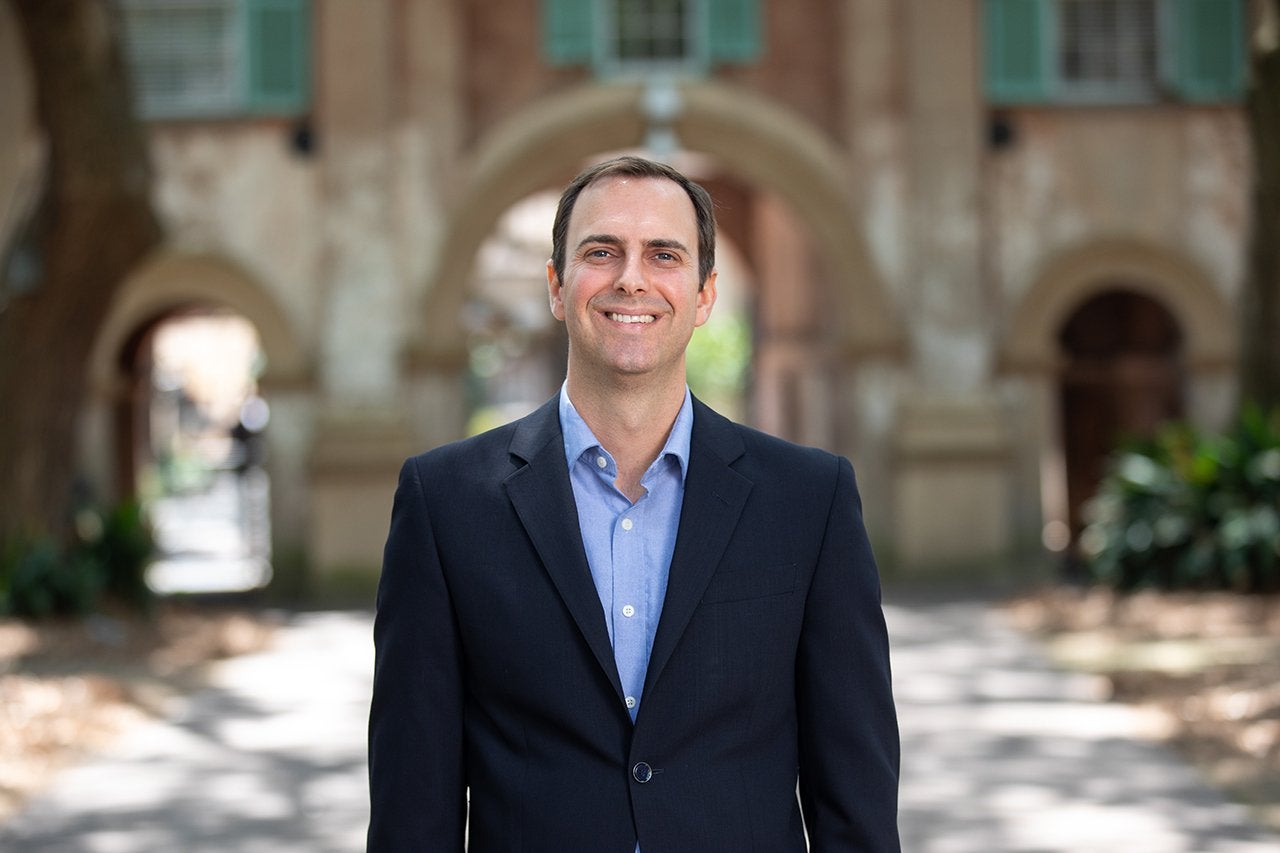As an assistant professor of hospitality and tourism management and the director of the College of Charleston’s Office of Tourism Analysis, Daniel Guttentag knows the kind of impact travelers can have on the places they visit and the people who live there. He also knows the kind of impact those people and places can have on the traveler.
That’s why, when he received a Fulbright Scholarship to spend the 2023–24 academic year teaching tourism at ISAE University in Panama City, Panama, and researching Indigenous tourism throughout the country, he knew just how impactful the opportunity would be – not just for the people of Panama, but for himself, his family and his students back home, too.
“It’s always impactful to spend a significant period of time living in another culture, and it’s not something I’ve done in many years, so I know I will come home with slightly different lens through which to see everything,” says Guttentag, who spent two years living in Panama shortly after finishing his undergraduate degree at Colgate University. “This Fulbright is a special opportunity to again spend a significant period of time in the country, but now at a different stage in my life. After having spent the past roughly 15 years researching and teaching about tourism, I’m looking forward to now hopefully having more to contribute in terms of sharing the knowledge I’ve acquired.”
One way he will be contributing is through his research project investigating how effectively Panamanian Indigenous tourism enterprises harness technology (websites, social media, reservation software, etc.), and identifying potential barriers hindering their effective use of technology.
“I will spend time in a variety of communities, representing different Indigenous groups, as I conduct the research – and I will provide training on tourism technology within the Indigenous communities where I am working, too,” says Guttentag, who has long focused his academic research on tourism technology and also teaches the subject at the College. “I’m excited to find opportunities to assist the Indigenous tourism businesses that I will be working with, and I expect that I will be inspired to find ways to continue engaging in similar work once I am back home.”
He also expects that teaching in the university’s tourism program will be inspiring.
“I’m looking forward to teaching classes in Spanish – which I find both exciting and intimidating – and I’m very eager to get a feel for how the pedagogy at my host institution differs from what I’m accustomed to,” he says. “I have no doubt that it will strengthen my teaching when I return.”
Guttentag will be accompanied by his wife and two children, who will be attending elementary school in Panama.
“I’m especially excited about the immersive intercultural experience that my children are going to enjoy in Panama,” he says. “Beyond helping Indigenous tourism companies find technology tools and solutions that boost their businesses and livelihoods, and watching my children become fluent in Spanish, I hope to have the opportunity to travel throughout the country, and just enjoy being immersed in everyday Panamanian culture.”
Indeed, it’s a win-win for all, and Guttentag is grateful for the opportunity.
Since its inception in 1946, the Fulbright Program has given over 400,000 students, scholars, teachers, artists and professionals of all backgrounds and fields the opportunity to study, teach and conduct research, exchange ideas and contribute to finding solutions to important international problems. Now the largest and most diverse international educational exchange program in the world, the Fulbright Program is funded primarily by an annual appropriation made by the U.S. Congress to the U.S. Department of State’s Bureau of Educational and Cultural Affairs.




